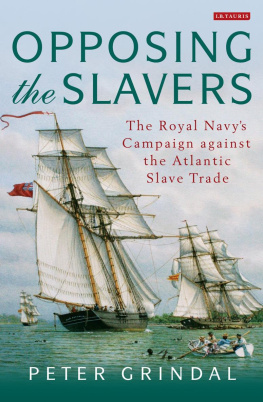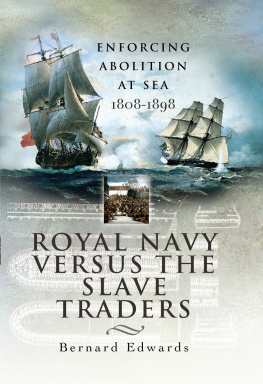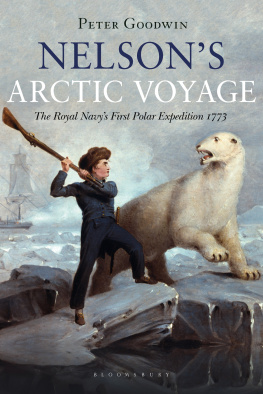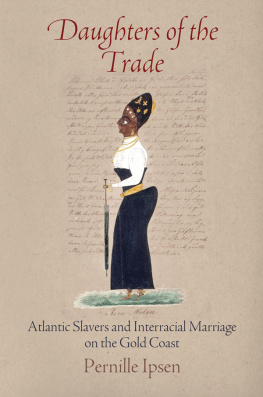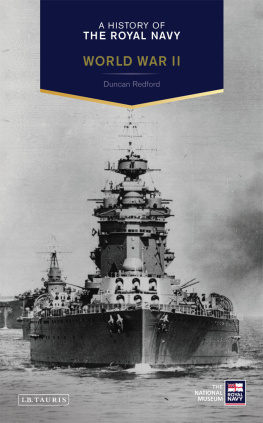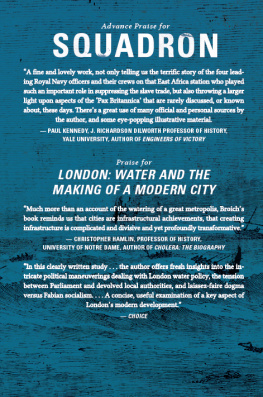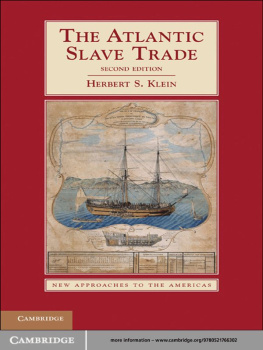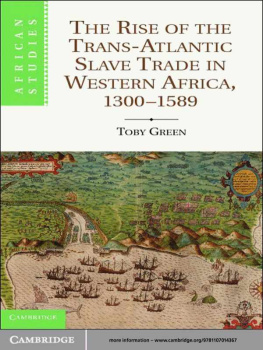Peter Grindal saw active service during the 1962 Brunei rebellion and held sea commands in the ranks of lieutenant and commander before becoming Training Commander at the Royal Naval College, Dartmouth. After a period on the MoD Naval Staff, he commanded a frigate squadron, and was in charge of the task group protecting shipping in the Gulf during the IranIraq War. He was subsequently Captain of a major training establishment before his final appointment, as a commodore, to the NATO post of Commander of the UK/Netherlands Amphibious Task Group. He retired from the Royal Navy in 1992 and was made a CBE in the same year.
An awesome amount of research underpins this comprehensive narrative of a little-known part of Royal Naval history. The authors easy yet authoritative style makes the description of this brutally hard and unglamorous six-decade campaign a compelling read not just for maritime history enthusiasts, but for any student of the slave trade and its suppression and the related diplomatic and domestic politics.
Admiral of the Fleet the Lord Boyce, KG, GCB
Opposing the Slavers provides a major revision of the existing literature It will transform the study of abolition, the anti-slavery patrol and the nineteenth-century Royal Navy.
Andrew Lambert, Laughton Professor
of Naval History, Kings College London
An illuminating and highly detailed account of how the Royal Navy, not least through the actions of its individual ships captains, brought its tradition of victory to bear. And not just for country but for humanity. Through a war-fighting sailors eye, Peter Grindal expertly charts the long anti-slavery campaign which changed the Royal Navy, the reverberations of which can still be felt in operations today.
Admiral Sir George Zambellas, GCB, First Sea Lord
Peter Grindal has produced a deeply researched and detailed account of the Royal Navys longest, proudest and least-known campaign, against the appalling slave trade. He has done so with great authority, in a way that brings it to life for us and allows us to draw, if we will, lessons for combined international action today to halt such crimes against humanity; some 35 million people worldwide are still estimated to be in effective slavery. It is an extraordinary, and most important and valuable, achievement.
Vice Admiral Sir Jeremy Blackham,
Editor, The Naval Review
Opposing the Slavers is a masterful account of the Royal Navy West Africa Squadrons attempt to interdict the transatlantic slave trade during the first half of the nineteenth century. No other work comes close to its comprehensive perspective and mastery of the Admiralty records. This is the indispensable source of information for anyone seeking to understand Great Britains naval war against the slave trade.
Rafe Blaufarb, Professor of History,
Florida State University

Published in 2016 by
I.B.Tauris & Co. Ltd
London New York
www.ibtauris.com
Copyright 2016 Peter Grindal
The right of Peter Grindal to be identified as the author of this work has been asserted by him in accordance with the Copyright, Designs and Patents Act 1988.
All rights reserved. Except for brief quotations in a review, this book, or any part thereof, may not be reproduced, stored in or introduced into a retrieval system, or transmitted, in any form or by any means, electronic, mechanical, photocopying, recording or otherwise, without the prior written permission of the publisher.
Every attempt has been made to gain permission for the use of the images in this book. Any omissions will be rectified in future editions.
ISBN: 978 1 78453 387 8
eISBN: 978 0 85773 938 4
A full CIP record for this book is available from the British Library
A full CIP record is available from the Library of Congress
Library of Congress Catalog Card Number: available
Text design, typesetting and eBook by Tetragon, London
For Julie, Francesca and Alexander
This account is dedicated to the memory of the very many officers and men of the Royal Navy and Royal Marines, and their Krooman shipmates, who gave their lives, or who suffered permanently disabling wounds or disease, in the long struggle to deliver the peoples of West Africa from slavery.
Contents
List of Illustrations
(All figures National Maritime Museum, unless otherwise indicated)
Maps
(All maps Mark Myers, 2015)
Maps
. West Africa Slave Coast, Northern Part
. West Africa Slave Coast, the Bights
. West Africa Slave Coast, Southern Part
. Atlantic Ocean Currents
. Atlantic Ocean Winds: January, February, March
. Atlantic Ocean Winds: July, August, September
Acknowledgements
R esearch and writing are solitary and time-consuming tasks, and I wish, first of all, to express my gratitude to Julie, my wife, not only for her encouragement but also for her forbearance during my long periods of submersion in this project. My thanks also go to her for applying her keen lawyers eye to proofreading, and for her valuable help with the most tedious task in the authorship of the book: compiling its long index.
The manuscript would never have reached publication had it not been for the extraordinary generosity of my brother Robert, and to him I will ever be enormously grateful.
My thanks then go to the staff of the National Archives (lately the Public Record Office) at Kew who have been unfailingly efficient and willing in their support of my research, and I am particularly grateful to Guy Grannum and William Spencer for their patient help. I also wish to thank Jenny Wraight and Ian Mackenzie at the Admiralty Library and Adrian Webb of the United Kingdom Hydrographic Office for their enthusiastic guidance through their treasures, and my thanks go also to Dr Quintin Colville and Dr John McAleese at the National Maritime Museum for their interest and advice.

